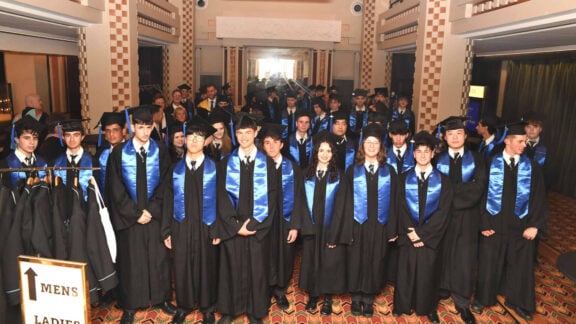Britain’s internationally renowned Sadler’s Wells theatre on Monday announced the shortlist for the first global dance prize, aimed at raising the profile of contemporary dance just as the Turner prize did for contemporary art.
The first biennial Rose international dance prize will be awarded next year, said Alistair Spalding, artistic director of the London theatre.
He said the seven shortlisted works explored themes that have dominated the world agenda in recent years – Covid, post Covid, climate change, identity politics and conflict.
Greece’s Christos Papadopoulos is nominated for his work “Larsen C”, named after the vast Antarctic ice sheet which broke away in 2017.
Larsen C is a work of art in movement inspired by the slowness of melting glaciers in order to speak of the fierceness of life, an international co-production of Onassis Stegi.
“Glacier” or “ice shelf” is the scientific name of the huge, 10,000-year-old, immobile body of Larsen C water in Antarctica. Larsen C, twice the size of Wales, moves so slowly that it cannot be detected by the human senses. It is as if the pulse of its movement is absorbed by space and time.
In Christos Papadopoulos’ homonymous choreography, human bodies resonate to the same perpetual rhythm, in a dreamlike sequence where they progressively appear as eerie as the polar landscape. Christos Papadopoulos becomes again an observer of the movement of the minimum which, in its interiority and repetition, produces life. “Larsen C” is a party in homage to the silent transition of bodies. It is “a metaphor”, comments the choreographer himself, “of life that, invincible, goes on.”

“My starting point, my inspiration is usually a single moment. A fleeting impression lasting next to nothing. Something small, likely insignificant – often I’m not sure whether it even existed or whether I imagined it. And yet there it remains, resolute inside me,” Papadopoulos said about his work, adding that: “That’s when the struggle begins in rehearsals, to trust in that small thing and call it significant. To stand up for it, give it time, and attempt to give it form without forcing it; and then, to wait. At the end of it all, to trust in the process until it reappears before me more complete, filtered through the imaginations of others. It is biding your time for the moment you hope will come. As in life.”
“Larsen C” premiered on September 28, 2021 at the Théâtre Jean-Vilar in Vitry-sur-Seine (hosted in partnership with La Briqueterie). That same fall, it went on to conquer yet more French stages: La Manufacture – CDCN (National Choreographic Development Center) Bordeaux, and Pole-Sud – CDCN Strasbourg (which has partnered with Onassis Stegi as part of the Grand Luxe network). To date, “Larsen C” has been presented in twelve cities across Europe, including Rome, Madrid, Barcelona, Liège, and Brussels. Its European tour is set to make more major stops through until the fall of 2024.
“Larsen C” premiered in Athens on the Onassis Stegi Main Stage, with a sold-out run of five performances from March 30 to April 3, 2022.
The nominations include Brazilian choreographer Lia Rodrigues’ “Encantado”, inspired by “notions of enchantment” and performed by dancers trained in the favelas of Rio de Janeiro.
Another, “An Untitled Love” by the American Kyle Abraham, depicts black love and community in the United States.
Other countries included on the shortlist are France, Israel, Portugal and Taiwan.
“We would like the Rose Prize to do what the Turner prize has done for visual arts, what the Booker has done for publishing,” Spalding said.
The prize will be divided into two categories – the Rose category for established choreographers with a prize of £40,000 ($50,000), and the Bloom category for emerging choreographers with a prize of £15,000.
Eligible works must be more than 50 minutes long and have staged their premiere between October 2021 and February 2023.
A jury will judge the entries at Sadler’s Wells in January and February 2025.
The winners of the two categories will be announced on February 10.
British dancer and choreographer Akram Khan, whose dance company created a section of the London Olympics opening ceremony in 2012, hailed the creation of an award specifically for choreographers.
He said it was a “rare” opportunity to “put a spotlight on the importance of story telling through movement”.
*with AFP









